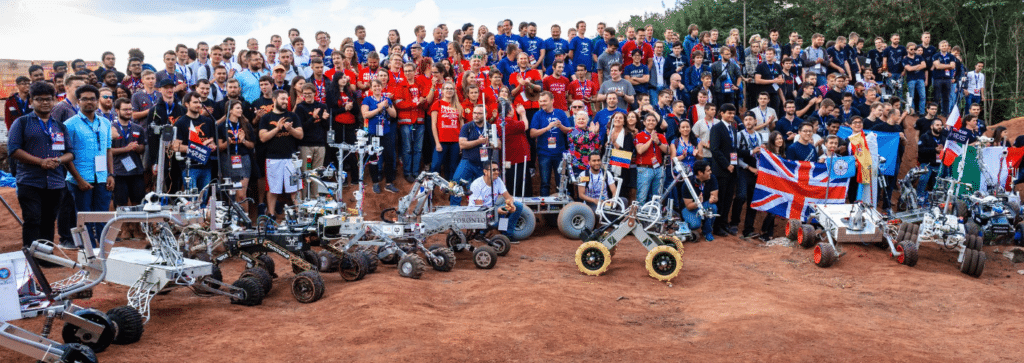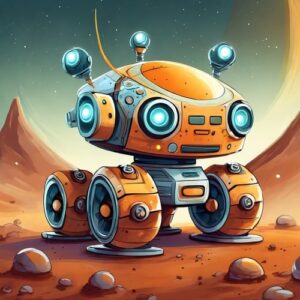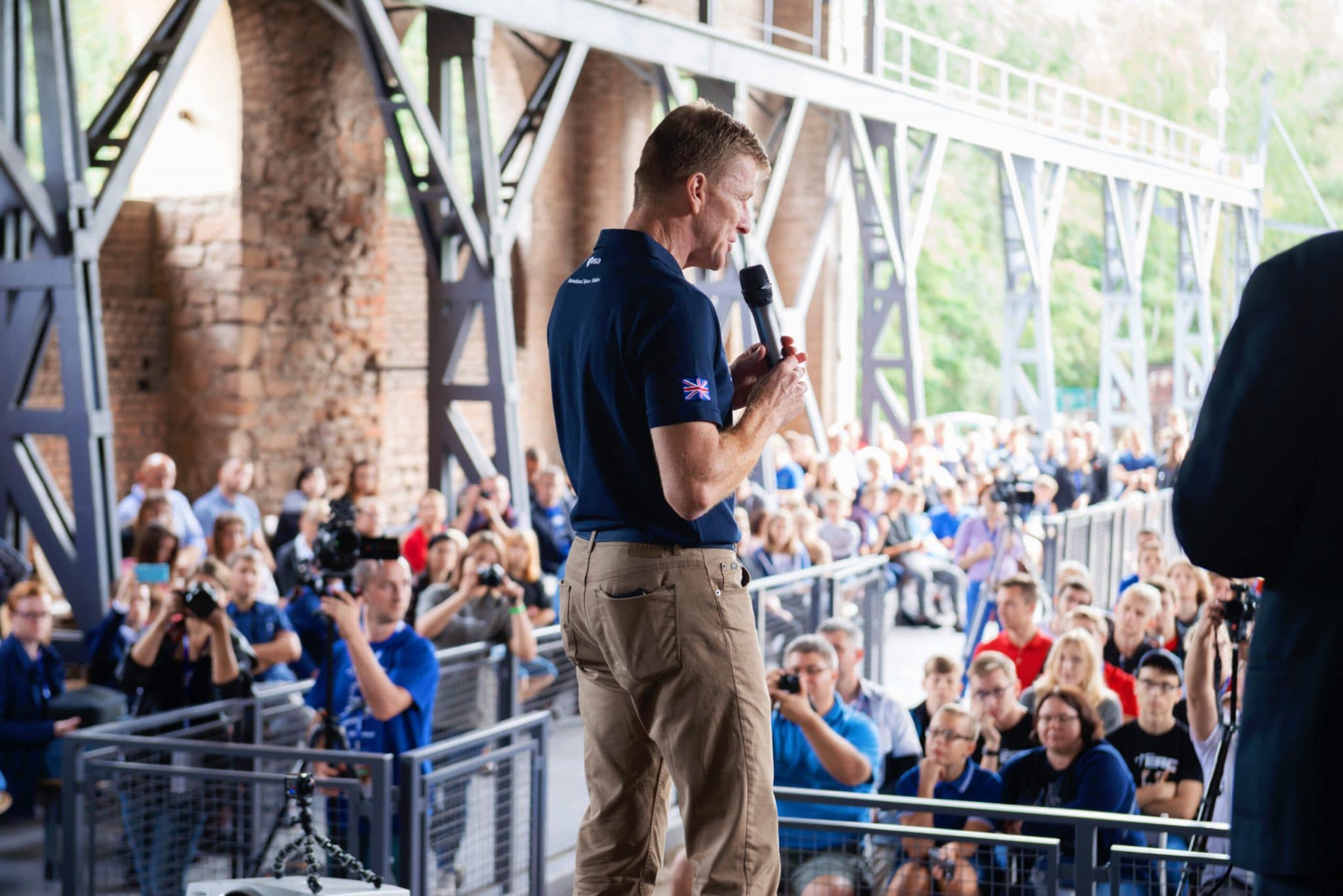Almost 400 engineers from five continents will come to Poland in the middle of September to take part in the grand final of the international rovers competition ERC. The tournament will be complemented by a mentoring and business conference where representatives of international space agencies and Space 4.0. industry will meet to share their experience and talk about future projects.
The grand final of the fifth edition of ERC will take place on 13-15 September 2019 in Kielce University of Technology, at the very heart of Poland. There are 40 teams from 15 countries that have qualified for the final stage. They represent, among others, Germany, Canada, Great Britain, Poland, Turkey, India, USA and Australia. As in four previous editions, apart from observing the teams’ struggles, ERC visitors can also expect a Science and Technological Show Zone full of educational experiments, lectures and workshops both for younger and older enthusiasts of science.

40 teams, 15 countries, 5 continents
Interplanetar, Reactor, Robocol or D.I.A.N.A. – these are not the names of newly discovered celestial bodies, although association with the space is quite right. Those are the names of some of the teams that have qualified for participation in this year’s ERC. There will be the Canadian Robotics for Space Exploration team from the University of Toronto (bronze winners at ERC 2018) and the Czech RoverOva from the University of Ostrava, which last year debuted in the competition taking fourth place in the final ranking of the teams. For the first time the European Rover Challenge will also host teams from Peru or Sri Lanka.
For the European Rover Challenge there will be a Martian field created at the Kielce University of Technology campus. With its shape, colour and geological composition it will imitate the surface of the Red Planet.
It is this course where the contestants will compete in four field categories based on the guidelines for future space explorations created by NASA and ESA. The teams’ job is to demonstrate skills of the robot they have worked on for past twelve months and its remote navigation – says Lucas Wilczynski, CEO of Planet Partners and founder and main organiser of ERC. He adds: Field tasks are open to the public which can observe the teams’ struggle from almost every side this year.
Hologram simulations, drones and robots building workshops
The whole event is open and free for all visitors. In the Science and Technological Show Zone there will be several dozen tents filled with attractions waiting for enthusiasts of space, robotics and science at any age. These attractions include scientific experiments, robot construction workshops, hologram simulations and bolide rides. Visitors will also have a chance to see presentations of devices created by companies from the space sector which are used during ESA (European Space Agency) and NASA space missions.
The international Mars rovers competition ERC also attracts well-known popularisers of science and space from broad-reaching Internet and social media channels. This year they will be present as well conducting interviews with special guests and run online streaming as well as a commentary studio.
Strengthening cooperation between business and science sectors
Apart from the international Mars robots competition and the Show Zone for the public, the program of the fifth edition of ERC also includes a mentoring and business conference.
Recognisability of the competition and awareness of its contribution to staff training and technology development for the space industry is increasing with every edition. We have decided to use this growing interest in ERC from the space sector and prepare the zone where the worlds of science and business can talk about common projects, share their knowledge and experience as well as find potential employees or contractors – explains Lucas Wilczynski.
Rich programme of the ERC conference covers two main topics. The first one is business and entrepreneurship. It will present actual examples of cooperation between companies from the space sector with entities from other industries as well as benefits for local companies that come with the participation in international space projects. This part will also include case studies of applying space technologies in the medical and ICT industry. The second main topic of the conference is robotics, including the development of the European Robotics Cluster, PERASPERA, commercialisation opportunities for academic projects as well as using rovers on Earth, for example in agriculture, mining and uniformed service.
The event will be attended by Steve Jurczyk from NASA, Gianfranco Visentin, Head of Robotics Department at ESA and PERASPERA Robotics Cluster Coordinator and Mariella Graziano, Space Systems and Robotics Director at GMV. ERC will also be visited by chief engineers of the ExoMars mission from the European Space Agency as well as representatives of international space agencies and largest companies operating in the European space industry. Detailed conference program and registration form can be found here: https://roverchallenge.eu/conference/. The participation is free, but registration is mandatory.
Commuting to work in Martian style
Residents of Kielce, the host city of the fifth edition European Rover Challenge can already feel a foretaste of what is going to happen during this year’s ERC. On the 20th of August 2019 Marsobus – the first educational Mars bus in Poland – has got to the streets of the city. Passengers of public transport in Kielce can now find out why the Martian soil has a characteristic rusty color, how long the year on Mars lasts and on what color the sun sets on this planet. ERC organizers used the space in the bus to familiarize the passengers with the topic of Polish devices that are already participating in Martian missions of ESA and NASA.

